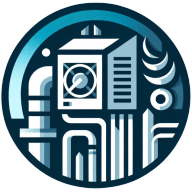Welcome to our deep dive into the world of energy-efficient heating and cooling systems. As we face increasing energy costs and a growing awareness of our environmental impact, the need for energy-efficient solutions in our homes and workplaces has never been more apparent. This comprehensive guide will explore the benefits, types, and implementation of energy-efficient heating and cooling systems.
The Importance of Energy Efficiency
Energy efficiency is more than just a buzzword; it's a necessity in our modern world. With the rising cost of energy and the increasing demand for sustainable living, energy-efficient heating and cooling systems have become a vital part of our homes and businesses.
These systems not only reduce energy consumption but also contribute to a healthier environment by reducing greenhouse gas emissions. Moreover, they can significantly lower your utility bills, making them a sound investment for the future.
In the next sections, we will delve into the types of energy-efficient heating and cooling systems, their benefits, and how you can implement them in your home or business.
Types of Energy-Efficient Heating and Cooling Systems
There's a wide array of energy-efficient heating and cooling systems available on the market. Each system has its unique features and benefits, making it suitable for different types of buildings and climates.
Geothermal heat pumps, for instance, use the stable temperature of the earth to provide heating and cooling. They are highly efficient and can result in significant energy savings.
On the other hand, solar air conditioning systems harness the power of the sun to cool your home or office. While the initial investment can be high, the long-term savings and environmental benefits make them a worthwhile choice.
Ductless mini-split systems are another excellent option. They provide both heating and cooling and are perfect for homes without existing ductwork.
In the following sections, we will delve deeper into these systems, exploring their benefits and how they work.
Benefits of Energy-Efficient Heating and Cooling Systems
Energy-efficient heating and cooling systems offer a multitude of benefits. Apart from the obvious advantage of reduced energy consumption, these systems also provide better temperature control, improved air quality, and increased property value.
Improved temperature control is a significant benefit. These systems provide consistent temperatures throughout your home or office, eliminating hot or cold spots.
Air quality is another crucial factor. Energy-efficient systems often come with advanced filtration features, reducing allergens and pollutants in the air.
Lastly, installing an energy-efficient heating and cooling system can increase your property's value. As energy efficiency becomes a priority for homebuyers, having such a system can make your property more attractive on the market.
Implementing Energy-Efficient Heating and Cooling Systems
Implementing energy-efficient heating and cooling systems requires careful planning and consideration. You need to consider the size of your property, your climate, and your budget.
Start by assessing your current energy usage. This will give you a baseline to measure the effectiveness of your new system.
Next, consider your climate. Some systems are more effective in certain climates. For instance, geothermal heat pumps work best in moderate climates, while solar air conditioning is more effective in areas with abundant sunshine.
Lastly, consider your budget. While energy-efficient systems can be more expensive upfront, they often pay for themselves in energy savings over time.
Maintenance of Energy-Efficient Heating and Cooling Systems
Regular maintenance is crucial to keep your energy-efficient heating and cooling system running at peak performance. This includes regular cleaning, timely repairs, and periodic professional check-ups.
Cleaning your system regularly can prevent dust and debris from clogging it up and reducing its efficiency.
Timely repairs are also important. If you notice any issues with your system, it's best to address them immediately to prevent further damage.
Lastly, consider scheduling regular professional check-ups. A professional can spot potential issues early and ensure your system is running as efficiently as possible.
The Future of Energy-Efficient Heating and Cooling Systems
The future of energy-efficient heating and cooling systems is promising. With advancements in technology and a growing emphasis on sustainability, we can expect to see even more efficient and innovative systems in the coming years.
For instance, smart thermostats are becoming increasingly popular. These devices allow you to control your heating and cooling remotely, making it easier to manage your energy usage.
Moreover, we can expect to see more integration of renewable energy sources in heating and cooling systems. This could include systems that combine solar power with traditional heating and cooling methods for even greater efficiency.
Embracing Energy Efficiency
As we navigate towards a more sustainable future, embracing energy-efficient heating and cooling systems is a step in the right direction. Not only do these systems reduce our energy consumption, but they also offer numerous other benefits such as improved air quality and increased property value. By understanding the types, benefits, and implementation of these systems, we can make informed decisions that benefit both our wallets and our planet.

